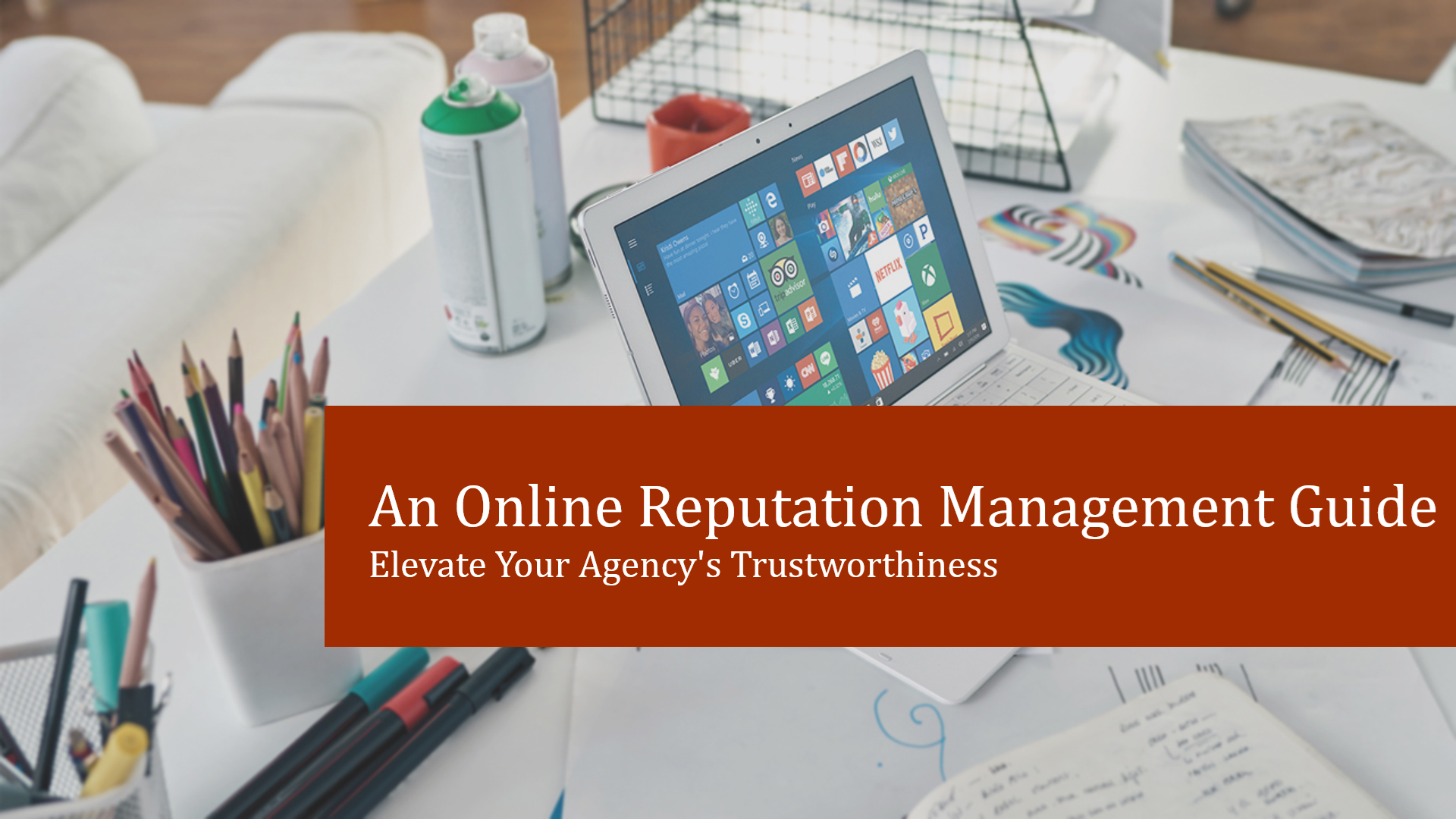Achieving a stellar online reputation is a goal we all strive for. In today’s digital age, reputation doesn’t just precede us — it actively influences potential clients or customers long before they even make contact. This social proof helps consumers make informed decisions, but it also means businesses must deliver on their promises. Credibility fosters trust, making a strong online reputation crucial. But why is this so important, and what can you do to enhance your online business reputation genuinely?
The Importance of Online Reputation for Agencies
Why is online reputation crucial for marketing agencies? There are several key reasons:
Credibility and Trust
A solid online reputation establishes a business as a reliable partner. Companies need to project confidence in their capabilities. Consumers often rely heavily on Google searches and reviews when choosing a business to work with. Positive reviews, a professional online presence, and industry recognition build confidence and attract new clients.
Competitive Edge
Understanding and managing your online reputation is vital. By monitoring competitors’ reputations and strategies, you can position your business more effectively and leverage your unique strengths.
Attracting Top Talent
A positive online brand image not only appeals to customers but also attracts top talent. This helps with recruiting and retaining skilled professionals who can enhance your business in various ways.
SEO Benefits
Google’s frequent Core updates can be daunting, but focusing on building a strong online presence and maintaining a positive reputation can boost your search engine rankings. This improves your discoverability and digital visibility, driving more traffic to your site.
Core Elements of Online Reputation
Managing an online reputation revolves around authenticity and transparency. Key elements include:
Quality Service or Product
Delivering exceptional services or products is foundational. Consistency and high standards are crucial, showcasing your commitment to excellence and building long-term trust and loyalty.
Customer Feedback
Listening to feedback from customers, clients, and employees is vital. This feedback provides insights into your business’s perception, revealing opportunities for improvement and areas needing attention.
Monitoring Conversations
Keeping track of online conversations about your business helps you understand your real-time reputation. Responding to feedback, especially negative comments, promptly and professionally can turn dissatisfied customers into advocates.
Digital Footprint
Your digital footprint—the information left behind through online activities—shapes your online reputation. Managing this footprint involves monitoring and controlling the content associated with your business, removing inaccurate or unfavorable information, and creating positive content.
Conducting an Online Reputation Audit
An online reputation audit involves evaluating how your business is perceived online. This includes defining goals, identifying relevant search terms, monitoring online mentions, and creating an action plan based on your findings. Regularly revisiting this audit helps you stay ahead of trends and address new challenges. Our free SEO Audit tool at SEOembedder can give you (or your visitors) an idea on how SEO-friendly your (or their) page is for a specific keyword or phrase.
Strategies to Enhance Online Reputation
Optimizing Website and SEO
Optimizing your website and employing SEO strategies can significantly impact your online reputation. This includes improving the SEO components of positive content, developing high-quality content, ensuring social media profiles are updated, and tracking mentions of your brand. Additionally, technical SEO elements like user-friendly navigation, mobile responsiveness, and fast loading speeds enhance user experience.
Customer Relationship Management
Effective CRM is essential for building a positive online reputation. This involves addressing feedback promptly, asking for and amplifying positive feedback, analyzing feedback to improve services, maintaining transparent communication, and delivering exceptional customer experiences.
Handling Negative Feedback
Negative feedback can harm your online reputation if not managed properly. Strategies include responding promptly and professionally, managing expectations, addressing legitimate issues transparently, offering compensation when necessary, and continuously tracking mentions to respond quickly.
Continuous Monitoring and Management
Boosting your online reputation requires ongoing monitoring and management. Regularly checking your online presence allows you to identify and address issues promptly, demonstrating commitment to customer service and positioning your business for long-term success.
Legal and Ethical Considerations
Maintaining a positive online reputation also involves adhering to legal and ethical standards. This includes ensuring information shared is accurate, obtaining proper authorization for using content, complying with advertising regulations, respecting privacy rights, and conducting all communications transparently and truthfully.
Conclusion
Enhancing your online reputation involves a comprehensive strategy that includes monitoring, responding to feedback, optimizing your online presence, and adhering to legal and ethical standards. By focusing on these elements, you can build credibility, attract new clients, and position your business for long-term success in the competitive digital landscape.















